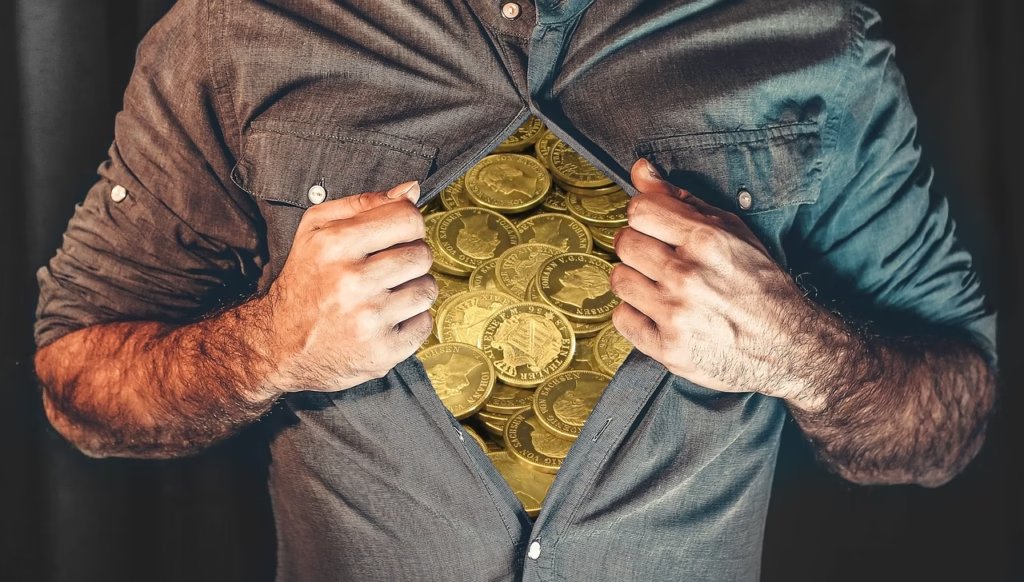What People Say About Themselves Reveals Who They Are
I was watching Paradise the other day, a TV series about a dystopian time when the U.S. president and 25,000 people lived in a cave to avoid some unknown catastrophe. I am still in the middle of the series, but something one of the villainous characters said piqued my interest. To pick up a guy, a stranger, in a bar for sex, she announced she was celebrating because she had just sold a company and now “I am worth $34 billion.” The guy, apparently worth less, noted his kiddie softball team won a game. She believed she was worth far more than the guy. She regarded herself as a commodity in a capitalist world where everything and everyone can be bought and sold, and therefore have a value. Yet, I wondered, such a monumental thing happened to her, and amazingly, she had no family or friends, even acquaintances, to share this news with. She shared it with a perfect stranger in a bar. No one makes that kind of money alone. They had to have had help, and they had some advantage. However, it seemed like she, as a commodity, was worth all that money, but no other human, even the people who helped her get there, that she could celebrate with. She was wealthy and deeply lonely.
Our Head Fill With Money – How Capitalism Convinced Us to Price-Tag People
Capitalism gave us the stock market, subdivision homes, keeping-up-with-the-Joneses, genocide, religion, aid, exploitation, colonialism, bigotry—lots of great stuff depending on what side of the social structure you sit. In a sense, it gave us a wicked report card for our humanity. Studies show that materialism correlates with higher anxiety and lower life happiness (Journal of Consumer Psychology, 2018). Why? Because when we internalize capitalism’s mantra—“you are what you earn”—we reduce ourselves, not just companies, but us as human beings, to walking profit margins.
In one of my former jobs, one of my colleagues and “friend” measured his worth by promotions. He would call me every time he got a promotion, which was every couple of months. He would outline how much more he made and seek validation while bragging on how important his bosses thought he was. I notice the promotions took him closer to high-risk positions that were under investigation, but why seem jealous and burst his bubble? Eventually, he got caught in a scandal and was fired by the same caring bosses. Suddenly, he was in an identity crisis, drinking himself to sleep. He has a new job, but not one with the prestige of the former. Recently, he announced that his company is being sold to an equity investment firm, so he will likely be unemployed again soon. Despite all this, he has not learned to decouple his value from a job.
Like my colleague, our brains are to blame. Dopamine—the “gotta get more” chemical—floods us when we chase wealth, chase prestige, show it off, without an iota of satisfaction when we attain it. This loops us into a hedonic treadmill, forever chasing the next paycheck, promotion or purchase. Worse, we project this scarcity mindset onto others. A 2021 study found that people perceive those with luxury cars as more competent but less warm—a trade-off that isolates us in golden cages. It’s why a luxury car ad typically shows a serious, unique man on a lonly road, while a Toyota ad shows people smiling an n an accepted group of like-minded people.
From Roman Slaves to Instagram Influencers: A Brief History of Human Commodification
Long before Forbes’ billionaire rankings, the Romans auctioned enslaved people with price tags based on strength and literacy. Medieval nobles flaunted silks to signal divine favor. Today, we “flex” with Ferraris and Lamborghinis and Instagram hustle porn. The game hasn’t changed—just the props.
Historian Yuval Noah Harari, one of my favorite authors, notes in Sapiens that money is one of our biggest “shared myths”—powerful because we collectively believe in it. But when we mistake this fiction for inherent worth, we repeat history’s cruelties. Enslavers quantified humans as “prime hands” or “breeding wenches.” Today, employers reduce us to “human capital” and “productivity metrics.”
My grandmother, who had eight children, once told me: “Back home, we knew the rich by how many mouths you fed. In America, rich means how much resources you hoard.” Her words haunt me when I see influencers flaunting Birkin and Louis Vuitton bags while 44 million Americans face hunger, many of whom live in tents under Interstate 20 and 85/75 in Atlanta (Feeding America, 2023).
How to Detox Your Identity from Being Reduced to a $ Dollar Sign
1. Audit Your “Value Vocabulary”
Your language shapes reality. That’s why I say, people will tell you who they are by what they say about themselves. Words have meaning and thread the fabric of society. Replace transactional phrases:
- Instead of saying, “I’m worth 100K.”→ Say, “I earn 100K.” Don’t reduce yourself to a medium of exchange, an IOU, a dollar sign or a piece of stock. You are a human being, and humans existed and did just fine for thousands of years before the invention of European capitalism, company contracts, stock markets, mergers, and acquisitions. Remember, money is only as relevant as long as people say it is. The moments in history when money was worthless, does that mean anyone with money was also worthless?
- Instead of objectifying people by saying things like, “She’s a 10 out of 10.” → Say, with respect, “She’s compassionate/beautiful/admirable/brilliant/a good leader.” Stop treating people like they are the latest mobile phone, or some inanimate object that supposedly displays our social status. The man with the so-called trophy wife is also included in this. Why is she reduced to a gold cup, you get for winning a game? What did she win?
2. Reclaim “Wealth”
Indigenous cultures like the First Nation people of the Americas defined wealth as reciprocal relationships with land and community (Braiding Sweetgrass, 2013). Try things like:
- Skill swaps: Trade guitar lessons for home repairs, financial advice for babysitting, car repairs for food from a neighborhood farm. Ultimately, money is a medium of exchange used to purchase goods and services. If you have a community of shared values and a social contract, you can have systems of exchange that do not involve a medium of exchange. Our value would therefore be intrinsic, what we provide in real terms of output, and not monetary rewards based on the whim of nepotism or race and gender bias. What if you bypass the money part sometimes?
- Time audits: Track hours spent earning vs. connecting. Meet people and talk about living, not about your material things, and how much cash value you have. Talk about what you can actually contribute and how to improve those. If you offer skills in farming, cooking, or useful skills that help to keep people alive on a daily basis, talk about those. Not that the others are not important, but they should also track the time they spend earning vs connecting with humans, rather than playing the infinite game of gaining more money.
3. Practice “Enoughness” Rituals
- Appreciation for what you have: List your non-monetary assets (e.g., “My genuine friend who listens without judgment, my family member who needs to hear from me, my loving partner who is always there for me, my community.” Who are the people you would tell of your achievements, not monetary, but simple achievements, for example, your softball team of kids won a game today? Who would be happier to hear such simple news and value your stories about the kids’ joy than they would be to hear about your stocks? Remember, on your deathbed, you most likely want to be around people who love you and who you love, rather than your stock portfolio report.
- Digital detox: Unfollow social media accounts and even platforms that trigger comparison, money, set money to your value, and to theirs. Seriously. I recently wrote about how I dropped Twitter, aka “X,” because it was just too toxic to be worth my time anymore. If social media gives you hives and anxiety, cut them off. If they showcase just materialism, constantly advertising that you can only be a person through shopping, cut them off.
Your Value Can’t Be Taxed, Inflated, or Repossessed
Capitalism’s report card of you is a deception. You are not an Initial Public Offering (IPO), dividend, stock, or human capital; you’re a living ecosystem of talents, feelings, relationships, and quiet acts of care for humanity. With all the distractions today, you have to work to be flesh, blood, and mind human and not a bundle of cash or digits on a bank’s server. As Robin Wall Kimmerer writes, “True wealth is the hum of bees in a pollinated garden.”
My Challenge to you this week is to quantify yourself in laughs shared with real people, not dollars earned or spent.
References
- Harari, Y.N. (2015). Sapiens: A Brief History of Humankind.
- Kimmerer, R.W. (2013). Braiding Sweetgrass: Indigenous Wisdom, Scientific Knowledge.
- Journal of Consumer Psychology (2018). Materialism and Well-Being: A Meta-Analysis.
- Feeding America (2023). U.S. Food Insecurity Data.



